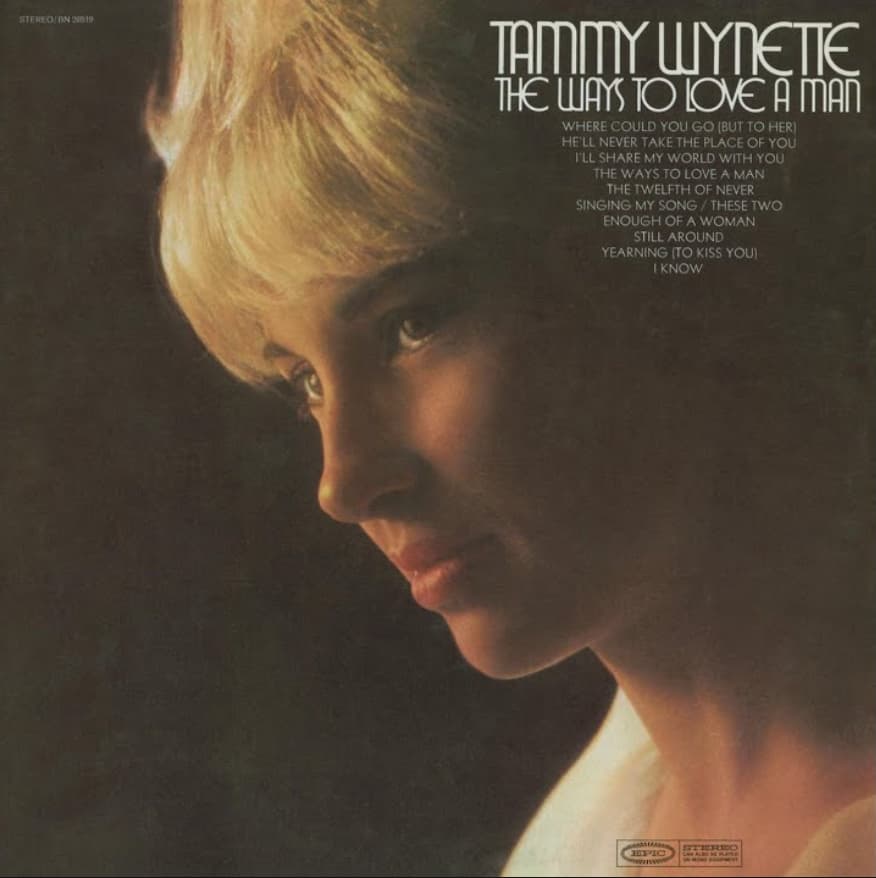
“Singing My Song” is a poignant reflection on a woman’s unwavering commitment to her love, even when it leads to heartbreak.
A Country Ballad for the Broken-Hearted
In the annals of country music, few voices resonate with the depth of sorrow and resilience quite like Tammy Wynette’s. Her songs are not just melodies; they are narratives of life’s hardships, sung with a raw vulnerability that makes them feel deeply personal. Among her vast catalog of heartaches and triumphs, the 1969 classic “Singing My Song” stands out as a powerful testament to the enduring spirit of a woman in love.
Released as a single in August 1969, “Singing My Song” swiftly climbed the charts, a testament to its immediate connection with listeners. It didn’t just chart; it dominated, spending an impressive two weeks at the coveted number one spot on the U.S. Billboard Hot Country Singles chart in October of that year. This wasn’t just another hit; it was an anthem for a generation who understood the quiet dignity of a love that, despite its pain, was still worth fighting for. The song also crossed over, reaching a respectable number 65 on the Billboard Hot 100, proving its appeal extended beyond the traditional country music audience.
The story behind “Singing My Song” is as compelling as the song itself. Penned by the legendary songwriting trio of Billy Sherrill, Glenn Sutton, and Tammy Wynette herself, the song was born from a place of deep personal and professional synergy. Sherrill, Wynette’s long-time producer, was a master at crafting songs that perfectly captured her emotive delivery. The lyrics of “Singing My Song” tell a heartbreaking yet resolute story of a woman who, despite being told she’s “singing the wrong song” by those who see her pain, continues to sing it because it’s the only one she knows—a song of unwavering love for a man who may not fully reciprocate it.
For those of us who came of age with Wynette’s music as the soundtrack to our lives, “Singing My Song” feels less like a piece of art and more like a shared experience. It evokes the memory of quiet, solitary moments, perhaps late at night with a radio playing softly, where the lyrics provided a comforting echo of our own heartbreaks. Wynette’s voice, a beautiful blend of vulnerability and strength, makes us feel seen and understood. The way she delivers lines like, “Everybody tells me that I’m singing my song wrong,” isn’t a plea for sympathy, but a statement of defiant loyalty. It’s a song for anyone who has ever been told to “get over it” but simply couldn’t, because the love was too deep, the commitment too strong.
This song, and indeed Wynette’s entire body of work, is a poignant reminder of a time when country music was the unvarnished truth of the American experience—of love found and lost, of resilience in the face of sorrow, and of the quiet courage it takes to keep going. “Singing My Song” isn’t just a hit from the past; it’s a timeless ballad that continues to resonate with anyone who has ever felt the sting of a love that defies logic, proving that some songs—and some loves—are simply meant to be sung, no matter the tune.